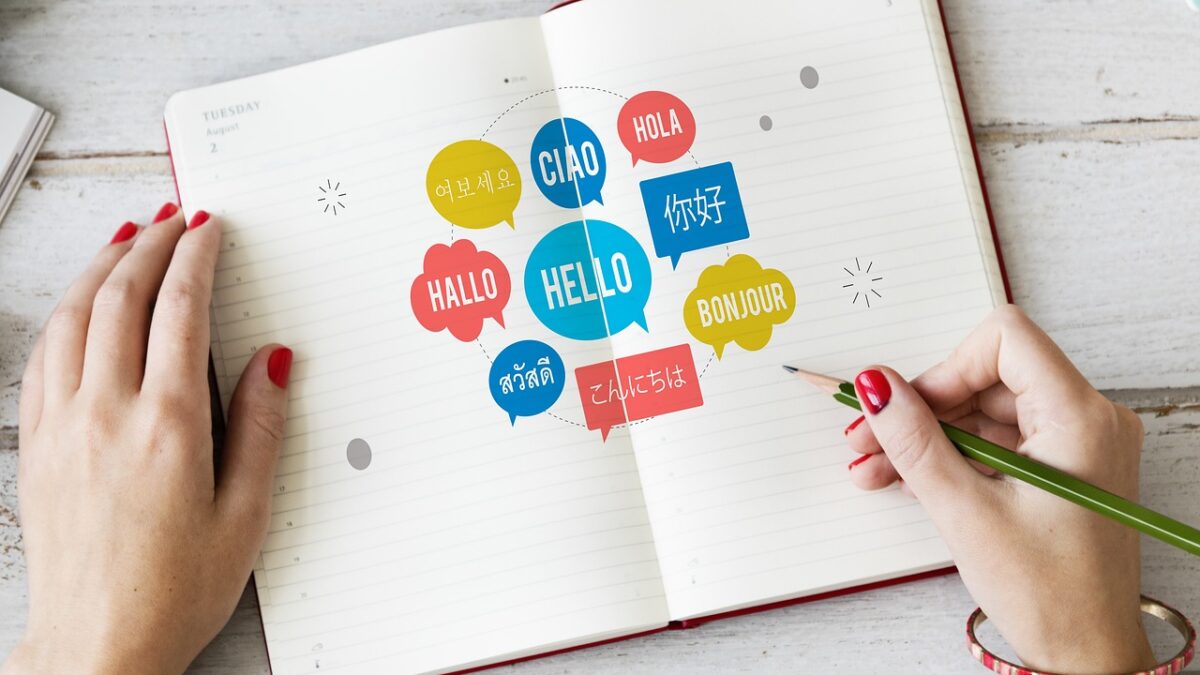
The Student’s Choice: Five UK Cities That Offer the Ultimate Student Experience
September 7, 2024
Understanding the Role of a Car Accident Lawyer: A Comprehensive Guide
September 7, 2024Translation services involve specialized providers professionally translating content from one language into another. Businesses working internationally or serving multilingual audiences use translations to communicate effectively across languages.
Professional human translators with subject matter expertise translate documents, websites, marketing materials, legal contracts, and more into targeted languages. Translations require understanding subtle cultural nuances and adapting syntax, idioms, and terminology accordingly so messaging resonates.
Translation firms offer services spanning major industries to language combinations using expert linguists, subject specialists, editing/proofing, localization, desktop publishing, and translation management technology.
Why Translation Matters
Translating words is key for clear communication globally.
- Expand globally: By translating materials into local languages, businesses can market goods/services internationally overcoming communication barriers and opening new revenue streams.
- Strengthen multilingual marketing: Translations allow tailoring messaging and campaigns to resonate across cultural/linguistic backgrounds better serving diverse customer bases.
- Improve multilingual customer service: From translated product documentation to multilingual support, translations facilitate higher quality assistance and satisfaction when servicing global clientele in native languages.
- Meet legal regulations: Translation services help companies comply with country-specific directives on providing product/service information for cross-border trade or establishing regional business presences.
- Enriched technical documentation: Complex subject matter gets translated accurately into multiple languages by dual expert linguists and subject specialists, aiding international stakeholder understanding.
Types of Translation
Diverse kinds of translation specialties and services exist catering to countless industry- or application-specific requirements:
General Translation
General translations cover simpler everyday documents without deeply technical or complex niche vocabulary that primarily necessitate accurately conveying overall meaning rather than rigorous word-for-word precision.
Examples span basic small business websites, marketing brochures, HR letters, religious content, or personal correspondence. General translators require fluency and writing proficiency capable of gracefully communicating concepts fluidly across languages. But this does not demand insider subject matter expertise.
Technical Translation
Technical translation tackles expertly converting highly complex machinery documentation, engineering manuals, manufacturing specs, telecom equipment whitepapers, or scientific journal submissions into completely coherent foreign language versions leveraging insider terminology.
Skilled technical translators boast deep bilingual abilities plus equally impressive comprehension of underlying concepts and lexicons Bridging knowledge gaps allows elegantly conveying intricacies of mechanical engineering diagrams, bespoke electronic component chemical interactions or even launching satellites – not just vocabulary look-up.
Legal Translation
The legal translation services represent an exceptionally demanding category requiring both linguistic precision and insider legal expertise delivering indisputable accuracy – otherwise carrying grave consequences.
Many common legal terms and justice system concepts resist direct translation since high-level meanings often become obscured or distorted absent surrounding jurisdictional context framing interpretation through established laws and local customs.
Medical Translation
Rarely does language translation carry more crucial weight than global medical scenarios with human health hanging in the balance. Medical translations spanning pharmaceutical literature, clinical documents, or patient materials require near-perfect reproductions where the slightest misprints or scientifically misaligned terms prompt care oversights delivering disastrous outcomes.
Flawless medical translations demand linguists to also be fluently conversant in anatomy, physiology, and pathology vocabularies plus common diagnostic/treatment vernacular used daily in clinics and in bedside manner.
Financial Translation
Finance represents another discipline where intricacies of complex transnational transactions, investment portfolios, or forecasting models rely intimately on technically precise bilingual communications customized exactly to match unique banking, accounting, and economic systems – bridging cultures requires transcending vocabulary.
Substantive financial translation thus mandates strong linguistic capabilities coupled with financial insider savviness spanning both micro and macro disciplines. Top financial translators artfully convey equivalently layered operational meaning without losing critically important context or details across languages. This helps international banking clients confidently engage in foreign markets.
Literary Translation
Unlike technical categories, literary translators bear special burdens requiring their creative works somehow to convey style, spirit, cultural context and intended underlying author message now encoded within rhymes, prose, plots, or even humor without losing story integrity each time works migrate languages targeting new audiences.
Website Translation
Finally, online experiences demand equivalent website engagement, utility, and seamlessness regardless of the visitor’s native language according to universally accessible commercial opportunities, essential services access, and inclusive participation for all web denizens.
Facilitating this demands adapting technical code plus content aligning UI flows and messaging tonality with localized norms and expectations. Global enterprises depend extensively on culturally tuned website translation delivering entirely natural localized experiences that growing diverse constituents expect.
How Translation Gets Done
Translating undergoes meticulous processes ensuring accuracy:
Project Planning
First translators analyze needs – volume, languages, deadlines, and formats. They customize workflows assigning human translators plus technologies like translation memory tools speeding repetitive passages.
Main Translation
Source materials get translated by native speakers with topic experience. Translating progresses systematically through documents applying correct grammar and terminology.
Editing and Proofreading
Fluent editor reviews draft refining text elements missed. Then proofreaders cross-check final papers catching typos/mistakes and checking readability.
Quality Checks
Before delivery, quality assurance specialists overview the entire translation validating precision satisfaction using error logs and metrics analysis.
Revisions
Client feedback pointing to unclear passages prompts revision requests to translation teams to update deliverables to published standards.
Impacts of Translation
Translations profoundly improve life globally:
Business Success
Companies depend on accurate marketing materials and multilingual customer support to thrive overseas. Translations remove communication sticking points.
Health Outcomes
Spreading medical research about diseases/treatments to worldwide audiences through translation saves more lives.
Justice
Due process rights require translating testimony, court rulings, and legal codes equitably irrespective of native language.
Cross-cultural Understanding
Subtitled entertainment plus translated global news on TV/online makes people relate better to other country perspectives via insights translation enables.
Tourism
Translated travel guides, hotel brochures, and menus entice visitors. Fluently multilingual staff also assist travelers abroad through precise interpreter translations.
Inclusion
Minority language speakers can fully participate in business/civic life thanks to ready access to document translation instead of facing exclusion.
Choosing Translation Services
Picking translators means weighing:
Industry Expertise
Select translators knowing professional terminology not just conversational lingo. Legal translators should possess law degrees, and doctors’ medical knowledge.
Quality Control
Ask what checks ensure excellence – editor reviews, proofing processes, client feedback, quality scoring? Repeated mistakes risk reputation.
Efficiency Tools
Modern tools like translation memory rapidly fill in previous passages. This saves costs without sacrificing quality. Confirm providers invest continuously.
Safe Handling
Require firm confidentiality standards safeguarding sensitive materials. Check data/file access rules, ID verification, and privacy education protecting rights.
Responsiveness
Ask how quick turnaround fixes address concerns. Slow unclear responses frustrate versus regret pledges preserving trust even amid miscommunications.
Conclusion
Translation services play a vital role in our increasingly interconnected world, facilitating communication, promoting understanding, and fostering global cooperation. By breaking down language barriers and bridging cultural gaps, translation services enable businesses, organizations, and individuals to connect and interact seamlessly across languages and cultures. From international business to healthcare, law, education, and beyond, translation services have a profound impact on various aspects of life, making information accessible, fostering cultural exchange, and promoting global understanding.





